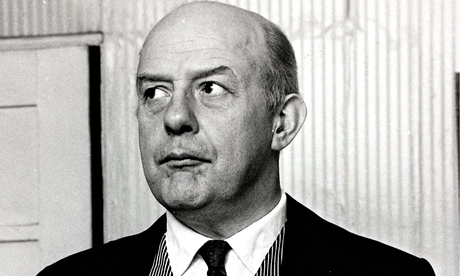
In Alan Bennett’s play The History Boys, there is a point at which the schoolmaster, Hector – in what now seems a legendary performance by the late Richard Griffiths – discusses Hardy’s poem Drummer Hodge and movingly reflects on how important it is that Hodge has a name. In the same scene, Hector observes: “The best moments in reading are when you come across something (a thought, a feeling, a way of looking at things) that you’d thought special, particular to you and here it is, set down by someone else, a person you’ve never met.”
Hodge resurfaces in Alan Bennett’s anthology of six poets but what is absent is anything to equal Hector’s emotional response. If Bennett feels any sense of wonder, it is undeclared. If moved by a poem, he tends not to mention it. This anthology is enjoyable, informative, entertaining but deflationary. The chosen half-dozen are: Thomas Hardy, AE Housman, John Betjeman, WH Auden, Louis MacNeice and Philip Larkin and each poem comes with a commentary. Housman, he tells us, was a pallbearer at Hardy’s funeral. This is one of the book’s rare, affecting details. What’s more, there is a rightness in having a neighbourly Hardy and Housman here – Housman is Hardy’s poetic pallbearer too.
What most detains Bennett is human faultiness. His is a down-to-earth take on the lives of poets: “Hardy and his wife hadn’t got on. She was vague, fey and, some people said, mad.” He is on curmudgeon watch. He tells an anecdote about Larkin standing at a Hull bus stop in the rain, saying to a student inching in his direction: “Don’t think you are coming under my umbrella.” He suggests that this attitude extends to Larkin’s poetic stance in his more unconsoling work. Housman also preferred admirers not to advance upon him: “Anyone who took the poems to be messages in code or flags of distress and, on the strength of them, plucked up courage to address what they took to be the real man, the author of A Shropshire Lad, found themselves sharply rebuffed.”
It is easy to see how his admirers might have got the wrong end of the stick – one has only to read the charming Shake Hands, with its perfect balance of contrition, ardour and loyalty. Bennett also wants us to know it is unlikely that Housman’s life was all ascetic misery, introducing the idea of a gourmand on the quiet: “...he would go on gastronomic tours of France, nosing out in unsuspected corners the remnants of great cellars”.And he may have had the occasional fling there, life not quite the sexual Sahara his poems suggest. None of these poets has anywhere to hide with Bennett about. There is a particularly unsavoury story concerning a chocolate pudding, chez Auden, waiting to be served up in the pot he used to piss in. And when writing about Philip Larkin’s over-quoted, “They fuck you up, your mum and dad”, Bennett points out that Larkin’s parents were an innocuous pair who did not deserve this write-up. He then adds, convincingly, that for most writers, it is having parents who fail to fuck them up that is the real disaster.
It is perhaps inevitable that it is Bennett more than the poets themselves that this absorbing anthology reveals. His selection is accessible, clear and inclines to the light – he ignores many of Auden’s greatest poems. It is no surprise that, with his unerring ear, he should approve of Betjeman’s pitch-perfect satire How to Get On in Society, a poem written as if with a perfectly wielded butter knife. And he goes way over the top about Louis MacNeice’s modest elegy Death of an Actress, which begins: “I see from the paper that Florrie Forde is dead… ” Florrie could almost have been one of Bennett’s own creations. It is a touching poem but by no stretch of the imagination MacNeice’s masterpiece, as Bennett would have it. He undersells MacNeice, suggesting his poetry was diminished by common sense (it is defined by uncommon sensibility). But I relish the way that, elsewhere, he employs his own literary common sense, stating at one point: “Half the job of learning to write is getting to know the sound of your own voice.”
Shake Hands by AE Housman
Shake hands, we shall never be friends, all’s over;
I only vex you the more I try.
All’s wrong that ever I’ve done or said,
And nought to help it in this dull head:
Shake hands, here’s luck, good-bye.
But if you come to a road where danger
Or guilt or anguish or shame’s to share,
Be good to the lad that loves you true
And the soul that was born to die for you,
And whistle and I’ll be there.

